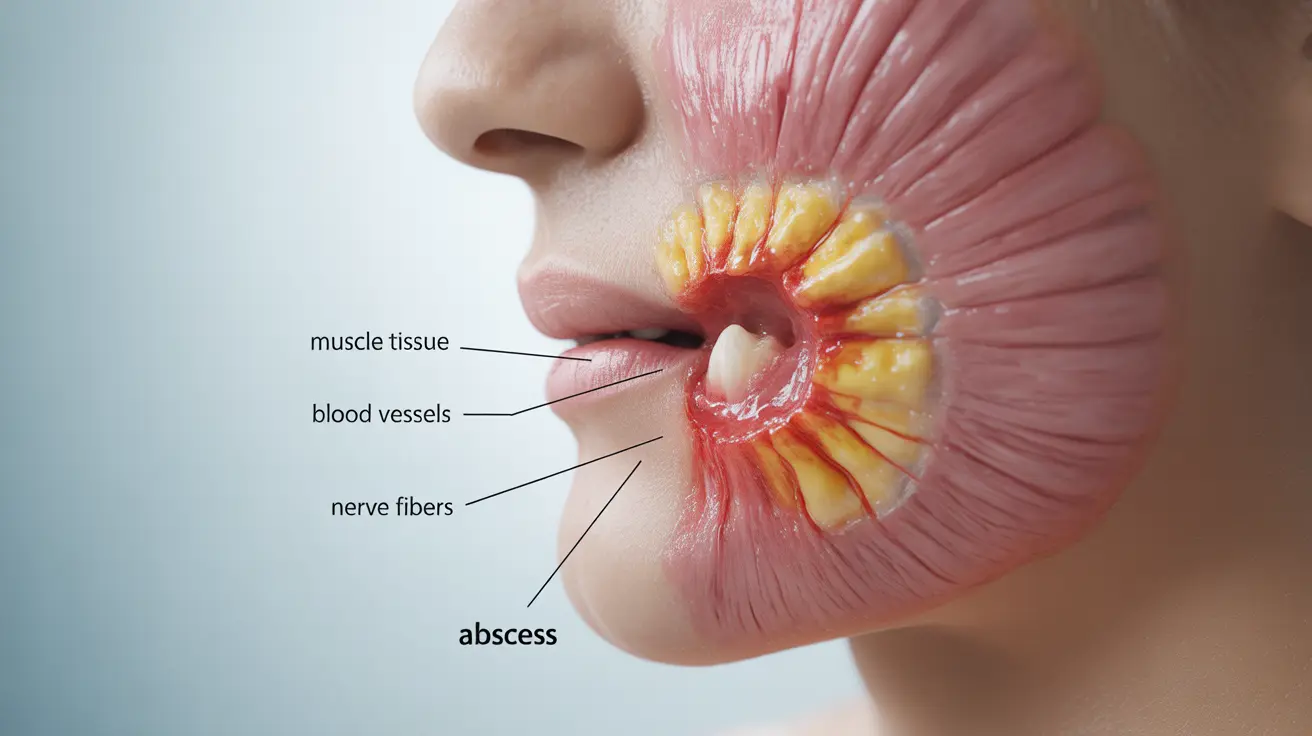A swollen cheek can be concerning and uncomfortable, potentially indicating various underlying health conditions ranging from minor injuries to more serious medical issues. Understanding the causes, symptoms, and appropriate treatments for facial swelling is crucial for proper care and knowing when to seek professional medical attention.
This comprehensive guide will explore the common causes of cheek swelling, effective treatment options, and important warning signs that warrant immediate medical evaluation.
Common Causes of Cheek Swelling
Facial swelling can result from numerous conditions, ranging from dental problems to systemic health issues:
Dental Issues
Tooth infections, abscesses, and severe cavities often lead to cheek swelling. These conditions typically cause localized pain and tenderness around the affected area, and may be accompanied by fever or difficulty opening the mouth.
Trauma and Injury
Physical injuries, such as falls, sports accidents, or facial impacts, commonly cause cheek swelling. These injuries may result in bruising, pain, and temporary disfigurement of the affected area.
Infections
Bacterial or viral infections affecting the skin, salivary glands, or surrounding tissues can cause facial swelling. Mumps, cellulitis, and salivary gland infections are common culprits that require proper medical attention.
Treatment Options for Swollen Cheeks
At-Home Care
Several home remedies can help manage mild cheek swelling:
- Cold compress application for 15-20 minutes at a time
- Over-the-counter pain relievers
- Gentle facial massage
- Elevation of the head while resting
- Salt water rinses for dental-related swelling
Medical Treatments
Professional medical treatments vary depending on the underlying cause:
- Antibiotics for bacterial infections
- Dental procedures for tooth abscesses
- Anti-inflammatory medications
- Drainage procedures when necessary
- Specialized treatments for specific conditions
Warning Signs and Emergency Symptoms
Certain symptoms accompanying cheek swelling require immediate medical attention:
- Difficulty breathing or swallowing
- Severe pain or fever
- Rapidly spreading swelling
- Vision changes
- Numbness or tingling in the face
Frequently Asked Questions
What causes a swollen cheek and when should I see a doctor about it?
Swollen cheeks can be caused by dental infections, injuries, allergic reactions, or infections. See a doctor if you experience severe pain, fever, difficulty breathing or swallowing, or if swelling persists for more than a few days without improvement.
Can a tooth abscess cause a swollen cheek and what are the signs to look for?
Yes, a tooth abscess commonly causes cheek swelling. Look for severe tooth pain, facial swelling, fever, sensitivity to hot and cold, and tender lymph nodes. These symptoms often indicate a dental infection requiring immediate professional attention.
What home remedies can help reduce swelling and discomfort in a swollen cheek?
Effective home remedies include applying cold compresses, taking over-the-counter pain relievers, keeping your head elevated while resting, and using warm salt water rinses for dental-related swelling. However, these should not replace professional medical care when needed.
How do doctors diagnose and treat a persistently swollen cheek?
Doctors diagnose swollen cheeks through physical examination, medical history review, and possibly imaging tests like X-rays or CT scans. Treatment depends on the cause and may include antibiotics, dental procedures, or other specific interventions based on the diagnosis.
Are swollen cheeks ever a sign of a serious allergic reaction and what symptoms should I watch for?
Yes, swollen cheeks can indicate a serious allergic reaction. Watch for additional symptoms such as difficulty breathing, widespread hives, rapid pulse, dizziness, or throat tightness. These symptoms require immediate emergency medical attention as they may signal anaphylaxis.




